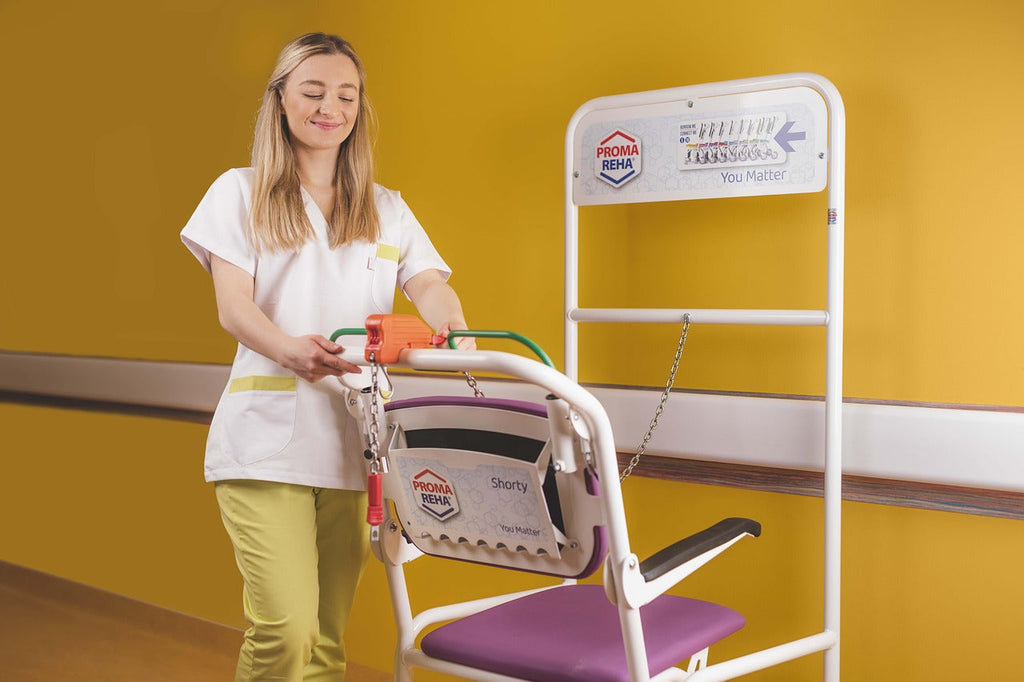Nursing is one of the most physically demanding professions, and for many nurses, chronic lower back pain is an all-too-familiar companion. Whether you’re working a 12-hour shift in a hospital, bending over to assist patients, or rushing between rooms, your back bears the brunt of the job’s demands. At Spinal Armor, we understand the unique challenges nurses face, and we’re here to shed light on why back pain is so common in nursing—and how you can protect your spine for a healthier career.
Why Nurses Experience Chronic Lower Back Pain
Nursing combines a variety of physical stressors that can take a toll on your lower back over time. Here are the key culprits:
- Prolonged Standing and Walking: A typical shift involves hours on your feet, moving across hard hospital floors. This constant weight-bearing can strain the lumbar spine, leading to muscle fatigue and discomfort.
- Patient Lifting and Transfers: Moving patients in and out of beds or wheelchairs requires bending, twisting, and lifting—motions that put significant pressure on your lower back. Studies show that nurses lift an average of 1.8 tons of weight per shift, equivalent to moving a small car!
- Awkward Postures: Leaning over beds to adjust IVs, reaching for supplies, or assisting with procedures often forces your spine into unnatural positions, increasing the risk of strain.
- Stress and Fatigue: The emotional and physical demands of nursing can lead to tension in the back muscles, exacerbating pain, especially during high-pressure shifts.
Research from the National Institute for Occupational Safety and Health (NIOSH) highlights that nurses have a higher prevalence of back injuries than many other professions, with up to 50% reporting chronic back pain at some point in their careers. For those who’ve been in the field for years, the cumulative effect of these stressors can lead to debilitating discomfort, absenteeism, or even early retirement.
The Impact of Back Pain on Nurses
Chronic lower back pain doesn’t just affect your workday—it impacts your life outside the hospital too. Persistent discomfort can make it harder to enjoy time with family, exercise, or even get a good night’s sleep. For career nurses, the fear of long-term injury can loom large, especially when pain starts to feel like a permanent fixture. That’s why taking proactive steps to protect your back is critical, not just for your health but for the longevity of your nursing career.
Tips to Prevent and Manage Lower Back Pain
While the demands of nursing won’t change, you can take control of your back health with these practical strategies:
- Strengthen Your Core: A strong core acts like a natural brace for your spine. Incorporate exercises like planks, bridges, or Pilates into your routine 2-3 times a week to build stability and reduce strain during shifts.
- Practice Safe Lifting Techniques: Always bend at your knees, not your waist, when lifting patients or equipment. Use assistive devices like slide boards or hoists whenever possible to minimize spinal stress.
- Optimize Your Posture: Pay attention to how you stand and move. Keep your shoulders back, chest slightly lifted, and avoid slouching, especially when charting or standing for long periods.
- Take Micro-Breaks: Even a 30-second stretch during a shift can relieve tension. Try gentle side bends or a seated cat-cow stretch to loosen tight muscles.
- Invest in Supportive Footwear: Shoes with proper arch support and cushioning can reduce the impact on your spine from hours of walking on hard floors.
-
Use a Spinal Support System: Traditional back braces can feel restrictive, but Spinal Armor’s innovative support system offers freedom of movement while providing targeted lumbar support. Designed to distribute pressure evenly, it’s ideal for nurses who need to stay agile during long shifts.
How Spinal Armor Can Help
At Spinal Armor, we’ve worked with healthcare professionals to develop a spinal support system that fits seamlessly into the demands of nursing. Unlike bulky braces, our lightweight design allows you to bend, lift, and move freely while stabilizing your lower back. Nurses who’ve used Spinal Armor report reduced pain and greater confidence during physically demanding shifts. Plus, we’re proud to offer a discount to nurses and other healthcare heroes as a thank you for your tireless work.
Take Charge of Your Back Health Today
Chronic lower back pain doesn’t have to define your nursing career. By understanding the unique challenges of your job and adopting proactive habits, you can protect your spine and stay strong for your patients—and yourself. Ready to experience the difference a tailored spinal support system can make? Explore Spinal Armor’s solutions and take the first step toward a pain-free shift.


Leave a comment: